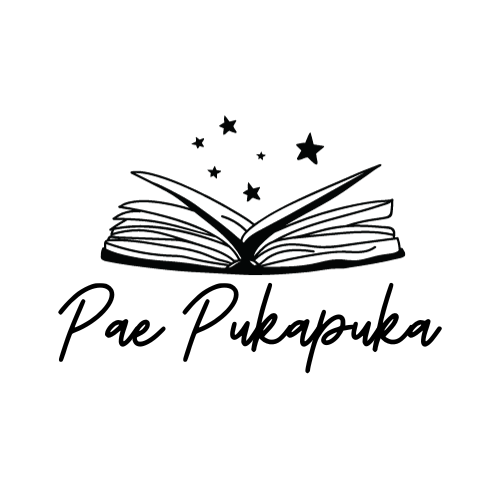Today, we are thrilled to welcome Gregory French, a New Zealand author who delves into the boundless realms of speculative fiction. With a background as a science graduate and former Engineer Officer in the NZ Army, Gregory brings a unique perspective to his storytelling, infusing his works with profound insights into the human condition and our potential futures. His writing journey began as a creative outlet to explore life's existential questions, which eventually led him to share his captivating stories with the world. Join us as we dive into Gregory's inspirations, his experiences as an indie author, and the sci-fi narratives that challenge us to think beyond our reality.

Can you share your background and how you became a writer?
Always love sci fi and speculating about the future, which led me into a science degree for a deeper understanding of the workings of the universe. Became an Engineer Officer in the NZ Army and through my international relation and strategic studies proved to myself that I could write, essays at least. So decided to try writing the stories that I had been cultivating in my mind over the years. I figured that there was more to my career that suppressed any artistic expression or imagination really. Managed to find time to write by negotiating with my boss for one day off every fortnight and went at it writing my first book.What inspired you to write your first book?
Life-time goal? Enrichen my life, entering a midlife re-evaluation of my existence/ existentialism. I had wondered why there was so much violence in the world (exposure to war torn countries) and what humanity could do about it given the right impetus and conditions, i.e. post-apocalyptic survival and a fresh start at civilization. I wanted to see if I could achieve the goal of writing about what I wanted to write about as opposed to what I was assigned.Who are some of your biggest literary influences?
Robert Heinlein, Issac Asimov, Peter K Dick, Frank Herbert
How does being from New Zealand shape your writing?
I think good stories can come from any country. I hadn't read any from NZ other than watching 'Under the Mountain' (thanks Maurice Gee) as a kid on TV. Humans all over the world speculate about the 'what if'. I wanted to write a good sci fi novel set in NZ to appeal to NZ readers and at the same time educate with historical information so that new immigrants or overseas readers would get to understand the context of New Zealand since Europeans arrived.
I like to write about places that I know (not just NZ), and it keeps me honest to the history of the location, albeit using some artist license.

What is your typical writing routine like?
Originally, it was pretty disciplined with one day every fortnight like a job, 8 hours with breaks trying to write 1500-3000 words with a rough edit each sitting. That method worked well when I was working, just applied the same work discipline.
Now that I have semi-retired after a burnout, my writing depends on each day's mental state. Some days I am happy with 500 words. Other days I don't have the mental energy beyond selfcare. Depression is a harsh mistress. Writing is a form of therapy for me helping me feel productive and focusing my chaotic thoughts, letting me enter the 'zone' where I am not worrying about life.
I do spend a fair bit of time just thinking through/ visualizing the next scene of a book or story or playing with a potential new story concept. It is good distraction and makes use of down time, if I am not trying to meditate.
How do you approach creating your characters?
The story dictates what characters are required to make the plot work. Visualization. Protagonists tend to have some elements of my own personality, or I borrow from the myriad of people that I have had the fortune or misfortune of knowing. Characters can create themselves as the needs of the story requires as I write it or they morph as I write about them and flesh out the bones of the story that I have mapped out. I try to keep in mind is what I have written keeping true to the character, but I do know humans (at least) are capable of some pretty unusual behaviour especially when influenced by substances.
What part of the writing process do you find most challenging?
Editing! Grammar. Keeping in mind the reader and keeping their attention with well-formed sentences. Luckily the English language is very flexible and able to be manipulated.
Of course marketing is the hardest thing, the litery world is awash of 'vanity' (hate that term) self published books non fiction, romance novels and celbrity life stories and cookbooks. Publishers are not that interested in speculative fiction, as it has a limited (even fringe) readership to it. I guess you have to look at it philosophically and write because 'it' is part of who you are and part of the 'richness' of your life's experience.
Do you use any specific tools or methods to keep your writing on track?
I like to use MS One Note to screen shot any info I want to refer to later in the story, or when I use MS Word, use the bottom of the writing as a place to dump info or screen shots, internet links. With One note I can open different tabs for different stories I may be bouncing around conceptually and yet to write. Otherwise, it all resides in my head waiting to be turned into words.

What inspired your latest book, and can you give us a brief synopsis?
A lucid dream, years before the movie world began to produce movies about regular people suddenly developing powers. It was interesting to watch the movie 'Unbreakable' and go "hey, that is like my storyline'. Good movie. My book goes much further and seeks to explain humanity's existence utilizing the supernatural and paranormal.
It is a story driven by vengeance and a resulting an alien invasion of Earth. It is a rip-roaring romp of science fiction drawing on advanced alien technology and humanity's ability to combat it with present day technology. Movies like 'Battleship' and 'Independence Day' came out while I had my concept in mind.
The story is set in Australia, which I have studied and spent a lot of time in and if you were an alien advance force where would you land to establish a firm base? Answer; some place with sparse human population/interference e.g. Central Australia or Antartica.
How long did it take to complete your latest book from start to finish?
Probably two years.

What are the biggest challenges and advantages of being an indie author in New Zealand?
Getting your book read. Self-publishing is a slap in the face of publishing houses as they have lost the hegemony, due to technology, of what gets published, since self-publishing is reasonably affordable, and printing machines can print single copies from stored electronic files. There are many self-publishing companies to choose from. Unfortunately, the traditional publishing houses have the marketing ability to get your book exposure. Going the 'indie' way gives you the satisfaction of joining the literary world but it is an extremely hard and expensive way to get noticed by a readership when you are trying to do it yourself. Even if you do get 'picked up' by a publishing house you lose your sign away your intellectual property rights and may get $2 for every copy sold at a retail price of $30-$40 (or $1.75 for every $5 ebook). The difference goes to the 'machine' and middlemen, that's rough. That is why you try to get involved with platforms like Pae Pukapuka.
How do you approach book promotion and marketing as an indie author?
Have tried my FB page to try and launch it and hope for the best. Some car boot weekend market sales, and involvement in online bookstores. The publisher that I go through offers listing the book on several online stores as hard copy or as ebooks.
What advice would you give to aspiring indie authors in New Zealand?
It is a work of passion and extremely difficult to make a living off.
If you have a story to tell, be true to yourself and find a way to write it regardless. It is part of who you are and part of the richness of life.

What do you hope readers take away from your books?
I hope that my readers see the effort that has gone into writing it, be amazed by the speculative nature of it and question our reality in context with propositions in the story. I would love the reader to be entertained by them but also leave them thinking.
What’s next for you as a writer? Any upcoming projects?
I am writing a novella about the concept of how we can go to heaven and not carry with us all that has happened in our lives and exist peacefully. The story has a working title of "It's best not to remember'. It is a book of two distinct parts, one in a surreal heaven, then the other during World War 2 in the town of Fiesole, Florence, Italy.
I am musing about a book or series bounding off my short story called 'The God Machine' set in a near future flooded Auckland.
Also, been thinking about autism and if there is some supernatural element to it.
As we wrap up our conversation, it’s clear that Gregory French is not just an author but a dedicated visionary exploring the edges of human understanding and imagination. Through his work, he invites readers to question, wonder, and escape into worlds where the ordinary collides with the extraordinary. With upcoming projects that delve into complex themes and diverse settings, we eagerly await the new stories Gregory will bring to life. Thank you, Gregory, for sharing your journey and insights, and for reminding us of the power of storytelling to spark curiosity and reflection.
Gregory French's Social Media Links:
Stay tuned to Pae Pukapuka for more Indie Author Interviews and all things bookish!
Noho ora mai, stay well! Happy reading 📚




